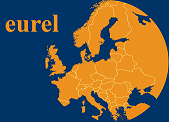As the German state struggles to come to terms with issues of migration, integration and accommodation of its Muslim citizens, the German Islam Conference (GIC) has been established as consultative body between the state and major Islamic groups. While the GIC has been declared to be a forum providing “dialogue at eye level”, the GIC has had effects well beyond providing religious freedom and accommodating religious needs. The specific trajectory of German state-church law and the political will to influence Muslim communities for security reasons has made the GIC an instrument that restructured Muslim communities, impact religious doctrine and urged Islamic organisations to collaborate with security agencies.
This paper discusses the problematic of the secular state dealing with and influencing Muslims via the GIC by analysing political and legal arguments justifying the GIC and by scrutinising the official statements issued by its members. Thereby, it will address the following questions: What religious and secular reasons are given to justify this kind of state intervention in Muslim affairs? What understandings of secularism and the nature of Islam do these statements imply? Three main hypotheses will be advanced: (1) The GIC is an instrument by which the German state tries to establish a normative Islam or what could be called an “Islamic Church”. (2) The GIC enforces a differentiation between “radical” and “moderate” Islam that has effected the state to make judgements on theological, legal and hermeneutical questions within Islam and thereby making “religious freedom” almost impossible. (3) The redefinition of the status of Islam in Germany has been fundamentally advanced by the courts and the politicians that initiated the GIC, much more than through parliamentary decisions. Thus, secularism as a problem-space is constantly changing the nature and interpretation of law in the process of redrawing the boundary between politics and religion.
- Other

 PDF version
PDF version
